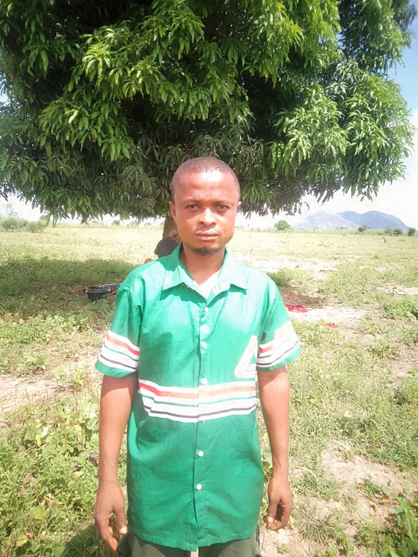
(Keffi – October 30, 2024) – Emmanuel, a young farmer from Keffi, a suburban settlement in Nigeria’s north-central state of Nasarawa, has turned his fortunes around through Bt Cowpea farming—a livelihood he embraced unexpectedly. Initially, he had dreams of a better life after completing his university education, but circumstances led him down a different path, making him a farmer.
Although entering farming was a tough decision, Emmanuel’s background in agriculture helped him adapt swiftly. Despite not initially seeing farming as a career, it has opened a new path of economic empowerment for him and his family. Starting from subsistence farming, Emmanuel has expanded his efforts, becoming a trusted source of advice for others interested in farming. Researchers now seek him out to learn about sustainable practices and genetic modification, the technology that transformed his fortunes.
During an interview at his farm in Keffi, Emmanuel shared that he currently owns bountiful hectares of farmland, with 7.3 hectares dedicated to Bt Cowpea, a genetically modified version of the traditional cowpea known as iron beans. Reflecting on his transition from struggling farmer to successful farm owner, he said, “Before, I used to farm the common variety of beans, and from a hectare, I could only harvest two or three bags. After several rounds of pesticide fumigation, I would still get only four bags.”
Emmanuel’s journey took a turn last December (2023) when a friend introduced him to Bt Cowpea. Following the advice, he visited the Institute of Agricultural Research (IAR) in Zaria, where he met Prof. Hassan, Head of the Department of Agricultural Economics and Extension, who generously provided him with a 100kg bag of Bt Cowpea.
With just one 100kg bag, Emmanuel cultivated five hectares, planting 20kg per plot. “I was fortunate,” he said. “There were no Bt Cowpea seeds available at the time, but my determination paid off.” Unlike his previous struggles with pests that required frequent spraying, the Bt Cowpea only needed two rounds of spraying.
Taking the bold step to seek out Bt Cowpea seeds proved life-changing. Emmanuel recalled, “From that one 100kg bag of seed, I harvested 136 bags of 100kg each. This significantly raised my economic status.”
Describing how his life has changed, Emmanuel said, “The difference is clear. Imagine being a university graduate without a job two or three years ago. Now, I can take care of myself and also pay the school fees of my five younger siblings.” From the initial investment, he has expanded to 7.3 hectares of Bt Cowpea, recently harvesting 89 bags from six hectares and selling the produce for N21 million.
The success has led Emmanuel to make Bt Cowpea farming his family’s core business. “My wife is also involved, managing another farm, and I’ve started dry-season farming to meet the high demand,” he shared.
When asked about the difference between conventional and genetically modified varieties, he said, “There’s no comparison. The Bt variety competes with every hybrid in the market. It’s less stressful, saves money, and yields more.”
Emmanuel plans to dedicate five hectares to seed production in the next season, aiming to give back to the system that has helped him thrive.


















































































